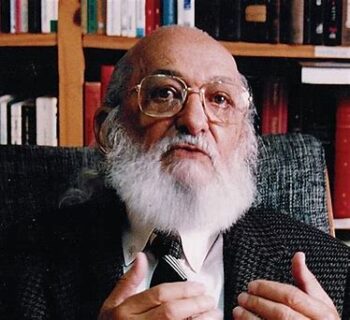
Author: Paulo Freire
Book Title: Pedagogy of the oppressed
Freire, Paulo. Pedagogy of the Oppressed. Translated by Myra Bergman Ramos, 30th Anniversary Edition, Continuum, 2000.
“Pedagogy of the Oppressed” is a seminal book written by the Brazilian educator and philosopher Paulo Freire, first published in 1968. It is a significant work in the fields of education and critical pedagogy. The book critiques traditional education models that perpetuate oppression and advocates for a liberatory approach to education.
Summary
The central idea of “Pedagogy of the Oppressed” revolves around the concept of oppression and the relationship between the oppressors and the oppressed. Freire argues that traditional education has been used as a tool by the ruling classes to maintain their power and perpetuate oppression by imposing a “banking” model of education on the marginalized.
In the banking model, knowledge is treated as a deposit that teachers (the oppressors) make into the minds of students (the oppressed). The students are seen as passive recipients, merely absorbing information without actively engaging in the learning process. This approach hinders critical thinking and creativity and reinforces the existing power imbalances.
Instead, Freire advocates for a liberatory or dialogical approach to education. He proposes a pedagogy of liberation, where both teachers and students engage in a reciprocal relationship. Through dialogue and critical thinking, students become active participants in their learning, questioning the world around them and contributing to its transformation.
The oppressed must develop a critical consciousness (or conscientization) to understand their social context, recognize their oppression, and work towards their own liberation. Freire emphasizes that true liberation comes from the oppressed taking agency and actively participating in the transformation of society.
Furthermore, Freire emphasizes the importance of love and empathy in the teaching process. He sees love not as a sentimental feeling but as a fundamental aspect of humanization. Teachers must be genuinely concerned about the well-being of their students and work towards their empowerment.
In conclusion, “Pedagogy of the Oppressed” advocates for a transformative education that empowers the marginalized to question and challenge oppressive structures, paving the way for a more just and equitable society. The book has had a profound impact on educational theory and practice, inspiring educators around the world to adopt a more critical and liberating approach to teaching and learning.
Key Concepts
Oppression
Oppression refers to the unjust and cruel exercise of power and authority by one group (the oppressors) over another group (the oppressed). It involves the systematic and institutionalized mistreatment, exploitation, and marginalization of the oppressed, perpetuating their subjugation.
Critical Consciousness (Conscientization)
Critical consciousness is the process by which individuals, especially the oppressed, become aware of their social and political conditions. It involves developing a deep understanding of the root causes of oppression, recognizing social injustices, and questioning the status quo. Through conscientization, individuals can take action to transform their realities and work towards liberation.
Liberation
Liberation is the state of being freed from oppressive conditions and structures. In the context of “Pedagogy of the Oppressed,” liberation refers to the emancipation of the oppressed from their dehumanizing circumstances and their active participation in creating a more just and equitable society.
Banking Model of Education
The banking model of education is a metaphor used by Freire to describe traditional educational practices. In this model, teachers deposit information into the minds of students, treating them as passive receptacles. The students are expected to memorize and reproduce this information without critical analysis, hindering their creativity and capacity for independent thinking.
Liberatory Education (Pedagogy of Liberation)
Liberatory education, also known as pedagogy of liberation, is an alternative approach to traditional education. It emphasizes dialogue, critical thinking, and active participation from both teachers and students. This approach aims to empower students to become critical agents of change, questioning oppressive structures and working towards a more democratic and just society.
Dialogue
Dialogue is a key aspect of Freire’s pedagogy. It involves genuine communication and exchange of ideas between teachers and students, where both parties listen to and respect each other’s perspectives. Through dialogue, individuals develop a deeper understanding of the world and each other, fostering mutual growth and transformation.
Humanisation
Humanisation refers to the process of becoming fully human, which, according to Freire, is hindered by oppressive structures. Humanization involves recognizing one’s individuality, dignity, and capacity for critical thought and creativity. Liberatory education seeks to humanize both the oppressed and the oppressors by challenging dehumanizing systems.
Praxis
Praxis is the combination of theory and practice in transformative action. It involves applying critical understanding and analysis to real-world situations, and taking action to bring about positive change. In Freire’s framework, praxis is central to the process of liberation, as conscientized individuals translate their understanding into transformative action.
These concepts are fundamental to Paulo Freire’s “Pedagogy of the Oppressed” and have been influential in shaping critical pedagogy and educational theory.
